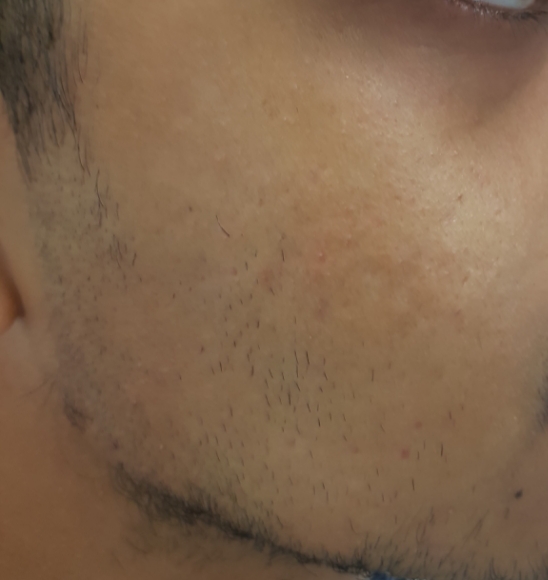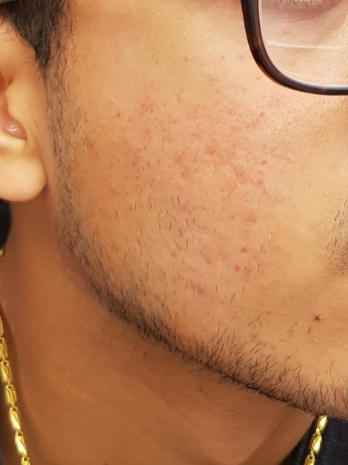

Are you frustrated by acne scars that just won’t fade? Many people suffer from the emotional and physical distress of lingering acne scars. This article explores effective treatments to combat this common skin concern and help you regain confidence. We’ll delve into various approaches, from topical creams and natural remedies to advanced procedures. We’ll also discuss how lifestyle choices can play a significant role in minimizing scar visibility. The structure of this article will cover the definition and common causes of acne scars, followed by a detailed look at different treatment options and finally, some essential tips and insights for the best possible results.
Understanding Acne Scars
Defining Acne Scars
Acne scars are marks left behind on the skin after acne lesions have healed. They can vary in appearance, from shallow depressions to raised bumps. The severity and type of scarring depend on the type and duration of acne, as well as individual skin characteristics. Different types of acne scars include ice pick scars, rolling scars, and boxcar scars. Recognizing the different types of scars helps in choosing the most appropriate treatment.
Causes of Acne Scars
Inflammation and the body’s healing response are the root causes of acne scars. When acne lesions become inflamed, they can damage the collagen and elastin fibers in the skin. During the healing process, the skin tries to repair the damage, but sometimes this process leads to uneven texture and discoloration. Certain inflammatory conditions can also contribute to scar formation. Understanding the underlying causes of scarring is essential in developing a comprehensive treatment strategy. In addition, factors such as genetics and skin type may play a role in the formation and severity of acne scars.
Topical Treatments
Overview of Topical Solutions
Topical treatments are often the first line of defense against acne scars. Many creams and ointments contain ingredients that promote collagen production, reduce inflammation, and improve skin texture. These treatments aim to gradually fade the appearance of scars and improve the overall skin tone. Examples include retinoids, vitamin C serums, and hydroquinone. Understanding the mechanism of action and potential side effects of these products is important. Many topical treatments are available over-the-counter, but it is crucial to consult a dermatologist for personalized recommendations.
Specific Topical Ingredients
Retinoids, known for their ability to accelerate cell turnover, can help improve skin texture and reduce the appearance of scars. Vitamin C serums, rich in antioxidants, fight free radicals and promote collagen production. Hydroquinone is a skin-lightening agent that can help reduce the pigmentation associated with acne scars. These ingredients work synergistically to improve the overall health and appearance of the skin. Understanding how each ingredient works and the potential risks is important before starting any regimen.
Related Post : Dealing with Persistent Breakouts? Understanding Acne Triggers.
Advanced Treatments
Laser Treatments
Laser therapy is a popular method for treating acne scars. Lasers use precisely targeted beams of light to stimulate collagen production, improve skin texture, and reduce the visibility of scars. Different types of lasers are available, each with its own mechanism of action and potential benefits. For example, fractional lasers can help stimulate collagen production and improve skin remodeling. Understanding the different types of laser treatments and their specific applications is key. It’s crucial to consult a qualified dermatologist to determine the best laser treatment for your needs.
Other Procedures
Microneedling is another popular method that creates tiny punctures in the skin, stimulating collagen production. It can improve skin texture and reduce the appearance of acne scars. Chemical peels can help remove damaged skin layers, promoting the growth of new, healthy skin. These procedures can produce visible results, but proper aftercare is essential.
Lifestyle Choices
Diet and Skincare Routine
Maintaining a healthy lifestyle can play a significant role in preventing and treating acne scars. A balanced diet rich in fruits, vegetables, and antioxidants can improve overall skin health and potentially reduce inflammation. A consistent skincare routine, including gentle cleansers and moisturizers, can help maintain skin hydration and protect against further damage.
Stress Management
Chronic stress can negatively impact skin health. High stress levels can exacerbate acne and even contribute to scarring. Implementing stress management techniques, like yoga, meditation, or spending time in nature, can help reduce stress and promote better skin health. Managing stress is a key factor in preventing and managing acne-related problems.
Seeking Professional Help
Importance of Consulting a Dermatologist
Acne scars are complex skin conditions. A dermatologist can perform a comprehensive skin evaluation to diagnose the specific type of scarring and develop a customized treatment plan. Dermatologists have advanced knowledge of skincare, and they can recommend the most effective treatments to achieve visible results. They can assess the underlying causes and recommend appropriate treatments to achieve the desired outcome.
Expectations and Realistic Outcomes
It is important to have realistic expectations about acne scar treatment. Improvement may take time and consistency. Results may vary depending on the individual’s skin type, the severity of scarring, and the treatment method used. Following the recommended course of action, and consistently maintaining the skincare routine are crucial factors in achieving the desired outcome.
Frustrated by acne scars that won’t fade? Understanding the various effective treatments is key to managing these marks. This article has provided a comprehensive overview of acne scar treatments, from topical solutions to advanced procedures. The most important step is to consult a dermatologist to determine the best course of action for your specific situation, skin type, and the severity of the scarring. Remember, patience and consistency are crucial in achieving the desired results. Consider incorporating lifestyle choices like a balanced diet and stress management for overall skin health and minimizing scar visibility. Now that you have a better understanding, you can take the first step towards a clear, confident you. Schedule a consultation with a dermatologist today!.